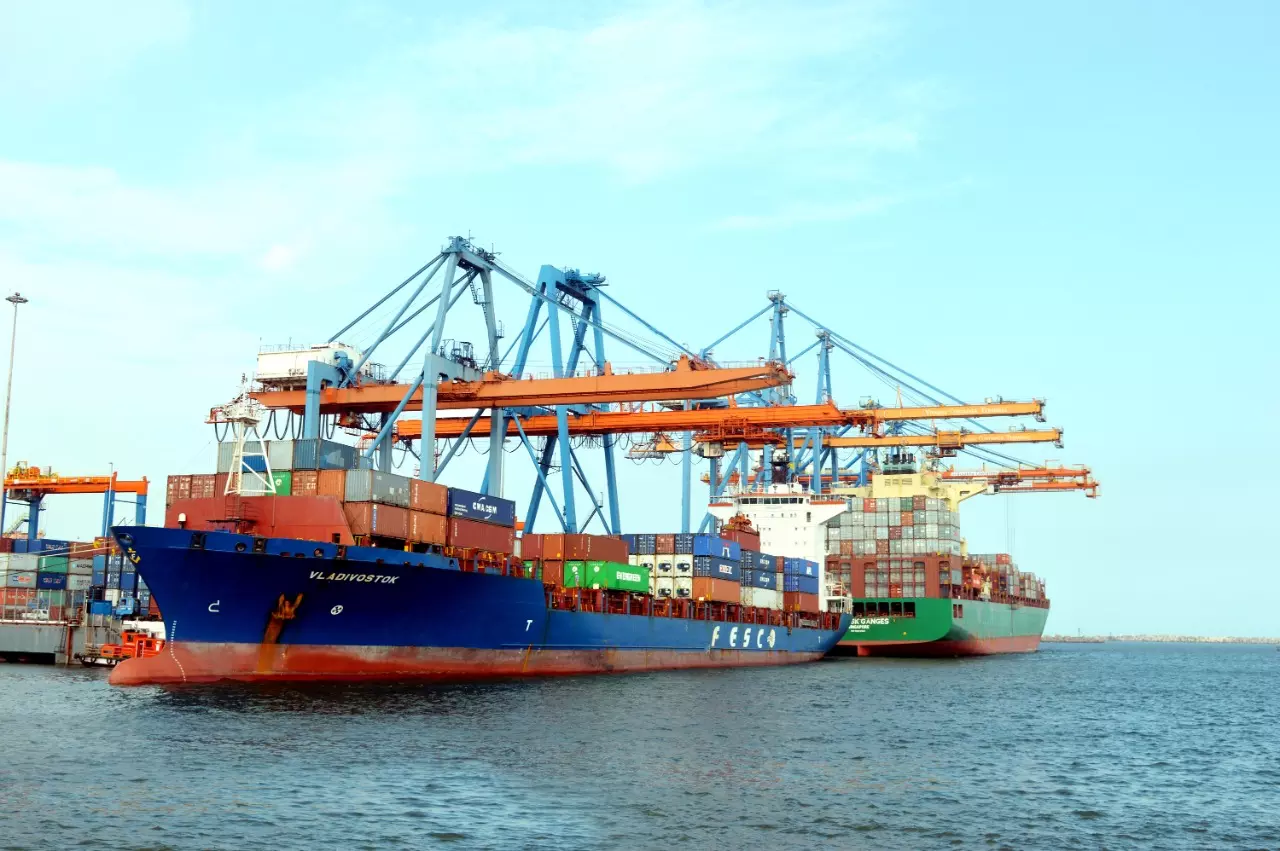5 key supply chain risks owing to the Russia-Ukraine crisis
Companies may have to brace up for disruptions due to cross-border holdups, sanctions against technology exports, higher prices for key commodities, and more, cites report

Operations in multiple sectors could be affected by either ongoing military operations in Ukraine or government sanctions against Russia
In a report titled 'Special Report: What's at Risk with Russia in Ukraine' released this week by Everstream Analytics cites that operations in multiple sectors could be affected by either ongoing military operations in Ukraine or government sanctions against Russia.
Everstream Analytics -a supply chain risk analytics company that delivers actionable insights highlights how some of the major links of global supply chains will be affected by the crisis and has asked companies to brace for disruptions due to cross-border holdups, sanctions against technology exports, higher prices for key commodities, and more. It warns that even if operations don't have direct Tier-1 suppliers in Ukraine, ripples may be felt from a company's suppliers' suppliers.
RAW MATERIALS
About 33% of Russia's gas to Europe flows through Ukraine, cites the report. Intensifying military operations could force Ukraine's state gas company to close its network for safety reasons. In a war zone, high-pressure gas pipes could cause explosions, potentially creating further price increases. A prolonged disruption could block gas inventory from being rebuilt through the summer, creating higher prices for winter 2022–2023.
With Russian troops in the largest Ukrainian port cities of Odesa and Mariupol, expect disruptions to all commodity exports, with higher prices for key agricultural commodities, including corn and wheat. Russia's commercial port closures in the Sea of Azov will add to the price pressure. The presence of Russian troops in Ukraine could also interrupt the supply of critical gases used to manufacture semiconductors that are mainly sourced in Ukraine.
The U.S. government has asked the chip industry to diversify its supply chain to protect against any Russian attempt to cut off access to neon, krypton, and xenon. Ukraine reportedly produces up to 90% of semiconductor grade neon exported to the U.S. Five of the world's top 100 auto suppliers have manufacturing operations in Ukraine, and Russia's invasion will affect the automotive supply chain in several ways.
Russia exports about 46% of global palladium production and 15% of the world's platinum—both key materials in automotive catalytic converters. Russia is also the world's third-largest gas exporter producer of nickel ore, used in stainless steel, alloys, casting, and electric vehicle batteries.
CYBER-ATTACKS
Computer networks across Ukraine have been affected by ongoing data-wiping malware attacks. These include data wiping malware on several government websites directed at the Microsoft Active Directory server. A large distributed denial-of-service (DDoS) attack targeted the country's Ministry of Foreign Affairs and Cabinet Ministry.
In addition, the largest ever cyberattack on Ukrainian key infrastructures prior to the invasion has the potential to spill over globally, similar to the Petya malware attack in June 2017 that halted business operations at multinational companies, including Mondelez, Maersk's subsidiary APM Terminals, and FedEx's subsidiary TNT Express.
Expect retaliatory cyberattacks in response to Western sanctions, says the report. For example, Russia could target critical supply chain companies and infrastructure, including in the aerospace, defense, energy, and agriculture sectors.
SANCTIONS
European Union (EU) sanctions may block technology transfers to Russia and lockout its banks from Europe's markets while freezing Russian assets in the EU. U.S. sanctions targeting Russian banks will limit them from conducting U.S. dollar transactions.
Other sanctions may prohibit the export to Russia of items created using U.S. technology, software, and goods involving integrated circuits and chips. Sanctions against Russian energy firms or Russian entities regarding the SWIFT financial messaging system would make all international transactions, including those to foreign companies, nearly impossible.
Prohibiting technology transfers would affect major manufacturers, including carmakers, which could be forced to shut down due to a lack of key components, in turn affecting parts suppliers across Europe, the U.S., and Asia. For example, major carmaker Stellantis (Fiat Chrysler Automobile and PSA Group) announced that it was prepared to shift or limit production in its Russian plants if Western sanctions disrupted those operations.
Sanctions on Russia's aluminium exports, about 4% of the world's production, remain unlikely due to supply shortages caused by recent sanctions on RUSAL, one of the world's largest aluminium producers.
LABOUR
Bombings, labor shortages or safety concerns could also affect manufacturing operations. For example, multinational companies, including Carlsberg, Coca-Cola, ArcelorMittal, and Mondelez, are halting or limiting operations in Ukraine. Many international companies are implementing pre-existing contingency plans for evacuating employees and staff to safer parts of Ukraine or outside Ukraine.
Titanium processor Titan Chemicals, located in the northern Crimean city of Armiansk, evacuated hours before Russian troops invaded Ukrainian territory. The military invasion is likely to disrupt manufacturing and warehousing operations even in western parts of Ukraine as employees remain home out of security concerns.
TRANSPORTATION
Closed airspace across Ukraine affects scheduling for Turkish Airlines, LOT Polish Airlines, AirBaltic, Air Astana, Air France, Lufthansa, and Finnair, which have all suspended flights into the country. Commercial flights also face restrictions in Russia's southern regions close to Ukraine. Increased security requirements and an influx of refugees for Poland, Romania, and Hungary will disrupt cargo flow and border operations. Cross-border materials and supplies may be halted or delayed due to border officials processing residents leaving Ukraine.



